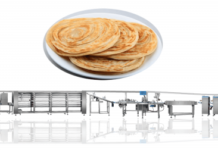New adaptive systems enhance workflow efficiency, cross-chain reliability, and enterprise scalability in decentralized ecosystems.
(Isstories Editorial):- Singapore, Singapore Sep 23, 2025 (Issuewire.com) – Atua AI (TUA), the decentralized AI productivity and automation platform, today announced the rollout of adaptive pipelines designed to strengthen scalable automation across Web3 environments. These pipelines improve real-time performance, enabling enterprises to streamline workflows and expand AI-driven operations across multiple blockchain networks.
More on Isstories:
- Sparket Leverages Landmark Patent to Launch Sparket.AI
- Working Parents Are Choosing Business Ownership Over Jobs That Won’t Give Them Parental Leave
- Chesshir Stone – Rock Supply Expands Presence in Plano Following Acquisition of Contractors Stone Supply
- Burj2Burj 2026 Confirms Its Place as Dubai’s Iconic Half-Marathon
- Valentine’s Day Style Guide: How to Choose the Right Wig from Isee Hair
The adaptive pipelines serve as dynamic orchestration layers that analyze network conditions, optimize resource distribution, and adjust execution logic automatically. This ensures smoother operation of AI modules such as Chat, Writer, and Coder across chains like Ethereum, BNB Chain, and XRP Ledger. By embedding adaptability at the protocol level, enterprises can minimize latency, improve resilience, and deliver reliable decentralized services.
For developers and businesses, this innovation offers a foundation for mission-critical applications, from decentralized finance to governance and compliance systems. With scalable design and modular integration, the adaptive pipelines provide enterprises with the flexibility to expand operations while maintaining consistency and performance.
About Atua AI
Atua AI offers AI-powered productivity and creativity tools in the Web3 space. Its features include Chat, Writer, Coder, Imagine, Transcriber, Voiceover, Voice Isolator, and Classifier.
This article was originally published by IssueWire. Read the original article here.





















